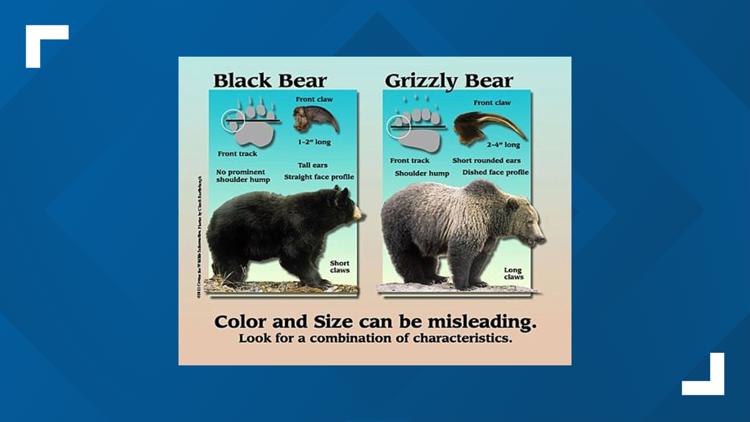IDAHO, USA — Bears are constantly on the lookout for food sources. According to Idaho Fish & Game (IDFG), they can spend up to 20 hours a day foraging for food.
The scents of garbage, barbeques, pet food and other animal feed, compost, and ripe fruit can bring in a foraging bear from miles away. Sometimes in dry years like this one when natural food sources are limited, it can bring them to unlikely places.
“With this hot, dry summer, we’re starting to see a pretty significant increase in bear complaints, and most of them are due to improper storage of attractants like chicken feed, and garbage cans left out," said Jason Husseman, wildlife biologist for Idaho Fish and Game. “Bears are very opportunistic and once they find a food reward, they will be back for more.”
IDFG warns that bears that find these easy food sources often lead to a bear that is food-conditioned and used to humans.
IDFG is reminding folks that most conflicts can be avoided by being extra mindful of their food and garbage. These same cautions apply to homeowners in bear country.
Here are some of IDFG's simple measures to prevent bear conflicts.
Tips around home/cabin:
- Keep garbage in bear-resistant containers or in a closed building.
- Empty and remove bird feeders during the summer months when songbirds are able to forage on food provided by nature.
- Clean up fruit that has fallen in your yard. Rotting fruit will attract bears as well as raccoons and skunks.
- Feed pets inside or during daylight hours; don't leave pet food or food scraps outside of your home or camp, as it can attract bears, raccoons and skunks.
- Store horse and livestock grains inside closed barns.
- Keep barbeque grills stored in closed buildings.
Tips around camp:
- Keep a clean camp. Store all food, garbage and even toothpaste, soap, lotions and bug spray in your vehicle or camper. If food storage in a vehicle is not possible, hang in a tree 10 to 15 feet off the ground, at least 100 yards from your campsite. Make sure that the bag is at least 4 feet from the tree trunk. Ideally, campers are encouraged to have a bear-resistant food canister to store their camp groceries.
- Never cook in or near a tent or keep scented products in a tent.
- Don't bury food scraps, pour out cooking grease, or leave anything that might be tasty on the ground or in the fire pit. Also, store barbecue grills or other smelly cooking gear inside your vehicle or within a sealed bear resistant container.
- Never leave food outside or in an unattended or improperly stored cooler. A cooler is not bear-resistant. Remember that pet food can also attract bears to your campsite. Be sure and secure any pet food after feeding your pet.
If a bear visits your campsite, IDFG says to make as much noise as possible such as yelling, waving your arms, or banging on pots and pans to quickly scare the bear away. Be sure to give the bear room to easily escape the area.



